
Salmon is a popular fish at mealtime, in part because it's a rich source of heart-healthy omega-3 fatty acids and in part because it's just plain tasty. Its rich, mild flavor works with both subtle and bold flavorings, and its flesh is dense enough and moist enough to stand up to any cooking technique. Like any other fish it's highly perishable, so it shouldn't be kept unrefrigerated any longer than you can manage.
Time and Temperature
Most consumer-oriented food safety primers focus heavily on time and temperature. Bacteria and other potentially hazardous microorganisms, or pathogens, reproduce best at temperatures between 40 and 140 degrees Fahrenheit. Lower temperatures leave them sluggish, while at higher temperatures most microorganisms struggle simply to stay alive. This is why that 100-degree range is referred to as the "danger zone." In that range of temperatures, pathogens can reproduce rapidly. This is important, because most have to build up a sizeable population before they can make you sick. If you slow their reproduction, food stays safer for longer.
Cooked Salmon
When you cook your salmon to the USDA's recommended food-safe internal temperature of 145 F, you've killed or seriously damaged any pathogens that might have been in the fish to begin with. However, the longer it sits out, the greater the opportunity there is for new pathogens to infect it. No cooked food should sit out for more than two hours before it's refrigerated, frozen or discarded. If you forget a baked salmon on the counter until bedtime, throw it out. If you have salmon appetizers for your party, bring them out a few at a time and discard any that are uneaten after two hours.
Before Cooking
The same two-hour rule applies to the salmon before it's cooked. Raw fish is highly perishable, so limit the time it spends out of refrigeration. When you're shopping, buy your fish last. If possible, take it home on ice, in a cooler. The time the salmon spends in your cart at the store, and in the car on the way home if it's not on ice, count against the two-hour limit. Refrigerate the salmon as soon as you get home and only take it out when you're ready to prepare it.
Other Precautions
Make sure you prepare your salmon on a clean surface. Wash your counters, cutting boards, hands and utensils with plenty of hot, soapy water before you begin. Anything that's been in contact with raw salmon should be washed thoroughly. Package and refrigerate your cooked salmon as soon as the meal is over, either by wrapping the serving tray in plastic wrap or by transferring it to a bag or sealable container. Never leave utensils on the tray, they can be contaminated with other foods and promote spoilage. Cooked salmon will keep for three to four days in the fridge, or for three to four months in the freezer.
Related Articles

How Long Can Chinese Food Sit Out ...
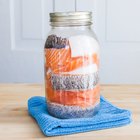
How to Can Salmon Fish

How Long Can Tuna Stay Fresh?
How to Keep Deli Meats & Fruit Cold at ...

How Long Does It Take for Salmon to ...

How to Cook Frozen, Boneless & Skinless ...
Do Sardines Ever Go Bad?
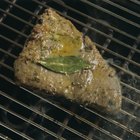
Can I Cut Freezer-Burn Off a Tuna Steak ...
How Long Can You Keep Canned Salmon?

Can You Freeze Canned Goods?
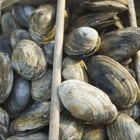
How Long Do Clams Last Unrefrigerated?

How Long Can Seared Ahi Tuna Be Kept?
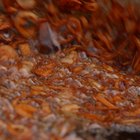
Guidelines For Refreezing

How to Know If Pork Chops Have Gone Bad

How Long Can Chicken Stay Out Without ...

How Long Is Leftover Spaghetti Good to ...
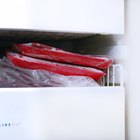
How Long Do You Keep Meat in Freezer?
How Long Does It Take for ...

How to Keep Lunch Meat

How Long to Cook Canned Salmon in a ...
References
Resources
Writer Bio
Fred Decker is a trained chef and prolific freelance writer. In previous careers, he sold insurance and mutual funds, and was a longtime retailer. He was educated at Memorial University of Newfoundland and the Northern Alberta Institute of Technology. His articles have appeared on numerous home and garden sites including GoneOutdoors, TheNest and eHow.
Photo Credits
Eising/Photodisc/Getty Images